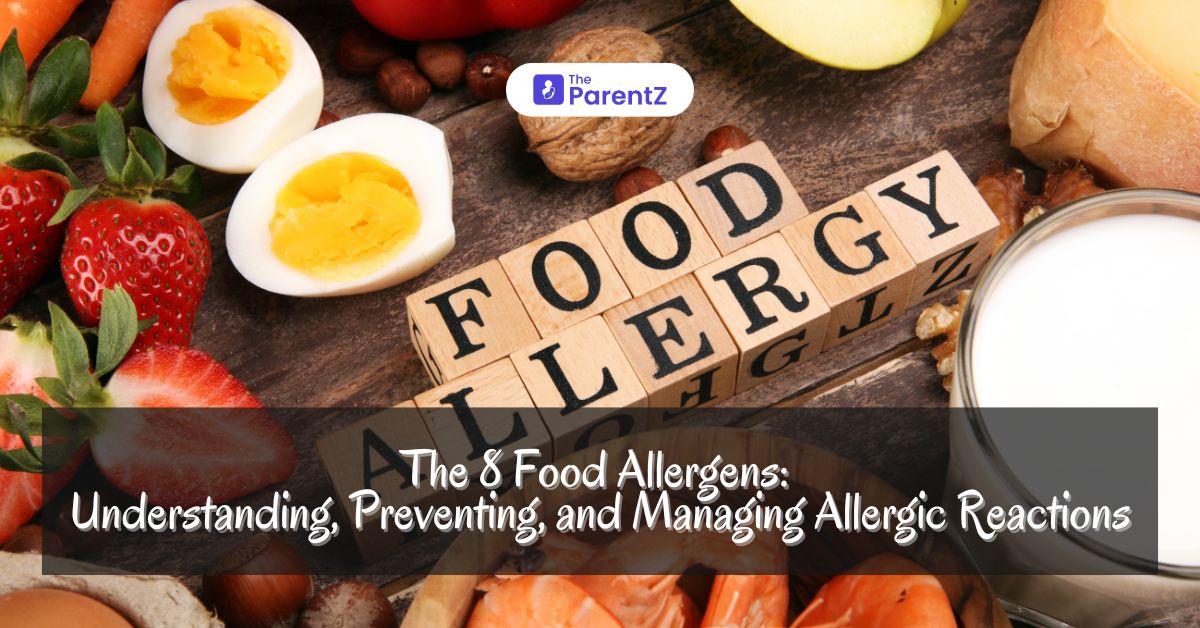In a world brimming with many food options, the challenge of food allergies transcends mere inconvenience. It’s a stark reality that it’s a matter of life and death for millions.
Imagine savouring a mouthwatering dish, only ambushed by an unexpected and potentially life-threatening response. This is the unsettling truth for those wrestling with food allergies, a perpetual struggle with the unpredictable.
Among the myriad food components, there are eight notorious troublemakers: soybeans, milk, nuts, fish, wheat, peanuts, eggs, and shellfish. These are the primary instigators of most food-related allergic reactions.
Grasping the nature of these allergens, their symptoms, and the latest research on prevention can equip us to foster safer, more inclusive dining experiences.
Together, let’s explore the intricacies of food allergies, delve into innovative approaches to early allergen introduction, and discuss groundbreaking studies reshaping our understanding of allergy prevention. Our collective efforts can lead to safer dining experiences for all.
Overview of Food Allergies
Food allergies affect millions worldwide when the immune system mistakenly identifies specific food proteins as harmful and triggers an adverse reaction. This immune response can range from mild symptoms, such as hives and gastrointestinal discomfort, to severe, life-threatening conditions like anaphylaxis.
The following table shows the different types of allergic reactions caused by ingesting the allergens:
| Allergen | Symptoms | |||
| Skin | Gastrointestinal | Respiratory | Severe | |
| Soyabean | Hives, eczema, itching | Nausea, vomiting, diarrhoea, abdominal pain | Wheezing, coughing, nasal congestion | Anaphylaxis, which can cause difficulty breathing, swelling of the throat, and a drop in blood pressure |
| Milk | Hives, rash, swelling of the lips, face, and throat | Vomiting, diarrhoea, abdominal cramps | Wheezing, coughing, shortness of breath | Anaphylaxis, leading to breathing difficulties and shock |
| Nut | Hives, eczema, swelling | Nausea, stomach pain, vomiting | Runny nose, wheezing, coughing | Anaphylaxis, causing airway constriction and cardiovascular issues |
| Fish | Itching, hives, eczema | Nausea, vomiting, diarrhoea, abdominal pain | Wheezing, coughing, nasal congestion | Anaphylaxis, potentially leading to respiratory and circulatory problems |
| Wheat | Hives, rash, itching | Nausea, vomiting, diarrhoea, stomach cramps | Nasal congestion, asthma, shortness of breath | Anaphylaxis, which can cause life-threatening symptoms |
| Peanut | Hives, swelling, redness | Vomiting, diarrhoea, stomach pain | Wheezing, coughing, difficulty breathing | Anaphylaxis, leading to severe respiratory distress and shock |
| Egg | Hives, eczema, swelling | Nausea, vomiting, diarrhoea, stomach pain | Wheezing, coughing, nasal congestion | Anaphylaxis, potentially causing severe respiratory and cardiovascular symptoms. |
Latest Research on Introducing Allergenic Foods to Babies
Recent studies have challenged the traditional approach of delaying the introduction of allergenic foods to infants. Early introduction may play a crucial role in allergy prevention.
LEAP (Learning Early About Peanut) Study
The LEAP study demonstrated that introducing peanuts to high-risk infants (those with severe eczema or egg allergy) between 4 and 11 months of age significantly reduced the prevalence of peanut allergy by age 5.
The study suggests that early and regular consumption of peanut-containing foods can lead to a 70-80% reduction in the risk of developing a peanut allergy.
EAT (Enquiring About Tolerance) Study
The EAT study explored the early introduction of six allergenic foods (peanut, egg, milk, sesame, whitefish, and wheat) in breastfed infants at around three months of age.
The results indicated that early introduction of these foods was associated with a lower incidence of food allergies, particularly for peanut and egg allergies.
Benefits of Early Allergenic Food Introduction
Immune System Training
Early exposure to allergenic foods may help train the immune system to recognise these foods as harmless, reducing the likelihood of developing an allergic response. This process, known as oral tolerance, involves the immune system learning to tolerate the proteins in these foods without mounting an allergic reaction.
Reduced Allergy Risk
Introducing allergenic foods around six months can decrease the risk of developing food allergies. Studies like LEAP and EAT prove that early introduction can be a proactive strategy to prevent allergies.
Improved Quality of Life
Preventing food allergies through early introduction can significantly improve the quality of life for children and their families. It reduces the need for strict dietary restrictions, constant vigilance, and the anxiety associated with potential allergic reactions.
Guidelines for Introducing Allergenic Foods
Based on the latest research, here are some general guidelines for introducing allergenic foods to infants:
- Consult with a Pediatrician: Before introducing allergenic foods, especially if your baby is at high risk for allergies, consult a healthcare professional.
- Start Early but Not Too Early: Introduce allergenic foods around 4-6 months, depending on your baby’s readiness and paediatrician’s advice.
- Introduce One Food at a Time: Start with small amounts of a single allergenic food and wait a few days before introducing another to monitor for adverse reactions.
- Maintain Regular Exposure: Once an allergenic food is introduced and tolerated, include it in your baby’s diet regularly to maintain tolerance.
- Watch for Symptoms: Be vigilant for any signs of allergic reactions and seek medical help immediately if severe symptoms occur.
Conclusion
Food allergies are a significant health concern, but early introduction of allergenic foods can help reduce the risk of developing these allergies. Studies like LEAP and EAT have provided valuable insights, shifting the paradigm towards early and regular exposure. Following the latest guidelines and consulting healthcare professionals, parents can proactively protect their children from food allergies, enhancing their overall health and well-being.








Be the first one to comment on this story.